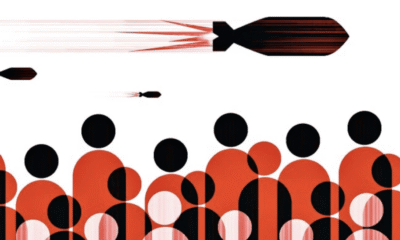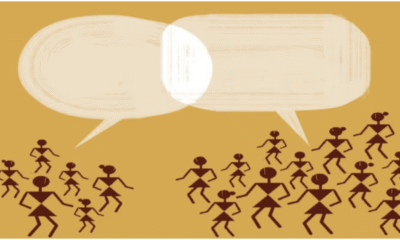
|
Getting your Trinity Audio player ready...
|
Party machine has to be aggressively geared up for the election. It needs centralised inspiration, but decentralised initiative.
Morgan Harper Nichols is an American lyricist and gospel musician. One of her year-end songs goes something like this. “This year will not end/ Like last year at all./ You have learned to be free./ You have learned to be strong./ You have held on to light/ When the night was too long./ You have braved many fears,/ You learnt a new song./ And through all of these valleys,/ You have learnt to stand tall./ This year will not end/ Like last year at all.”
In some ways, this year-end brings cheer and a sobering moment together for us in the party and government. Cheer because the economy is doing well. Stability and the growth rate have been impressive giving hope for a strong year ahead. On the foreign policy front, the country’s reputation has gone up; things have improved in the neighbourhood after some anxious months. And India got its first headquarters of any international body in the form of the International Solar Alliance headquarters at Gurugram.
The GST rollout, which took place on July 1 last year, had proved to be the government’s revolutionary economic reform towards the end of last year. This year has ended with another revolutionary social reform for gender justice in the form of the triple talaq ordinance that was promulgated in September this year. As we end the year, the ordinance is awaiting the nod of the Upper House after being passed by the Lower House to take the shape of an Act.
But on the political front, this year “will not end like last year”. Of the seven states that went to polls in 2017, the BJP had won six, ending the year with a comfortable victory in Gujarat. The party began 2018, too, with impressive victories in three Northeastern states in February. Of particular satisfaction were the victories in Tripura and Nagaland. In Tripura, the BJP alliance had secured a two-thirds majority, practically decimating the Left Front alliance which had been in power for a full 25 years. In Nagaland, the BJP had, for the first time, emerged as a strong force, winning 12 out of 20 seats contested and become a strong partner in the government together with the NDPP.
But by March, the party’s electoral prospects started facing hurdles. We lost two important Lok Sabha seats in Uttar Pradesh in the by-elections. In the assembly elections held in May to the Karnataka legislature, the party fared well but fell short by a dozen seats leading to the coming together of the two losers to form a government in that state. End of the year assembly elections to five states, too, didn’t bring any good news to the party.
Four months away from the next general election, the party urgently needs to restore its electoral fortunes. It needs to grab the initiative from the Opposition and regain its momentum. In 2014, the party went to the electorate with three things in hand: Narendra Modi’s popularity, a strong organisational network and the failures of the then ruling establishment. Five years into power, the party still has the first two things intact. Prime Minister Modi continues to be hugely popular, defying the conventional political understanding of incumbency. This year has seen him carrying many elections singularly on his shoulders. Despite losses, if the party could put up impressive fights in states like Karnataka, Rajasthan and Madhya Pradesh, it largely goes to his untiring campaign in those states. The two major victories in the Northeast were comprehensively for his leadership only. Prime Minister Modi remains a major hope for the people and a supreme asset for the party.
In fact, irrespective of the setbacks in the last couple of months, people at large understand clearly that the alternative to Modi is doom. There is no single party or leader who matches Modi’s vision and dedication. People have the choice of Modi’s progressive vision as against a visionless coalition with the singular motto of stalling that progressive vision.
There are issues that Modi and his party have to sit up and take note of. In some sections of the people, there is palpable anger. But it is largely borne out of greater expectations. People will always be in a hurry. But, unfortunately, the governments have a time limit of five years, within which not everything can be accomplished. That is why hardcore politicians keep an eye on the next election and plan things. Populism is the way to win elections for them, irrespective of its consequences.
“A politician looks at the next election; a statesman looks at the next generation”, said American theologian James Freeman Clarke. Prime Minister Modi is less of a politician and more of a statesman. The reforms that he had undertaken, whether it was the fight against corruption, or setting India’s economic basics right by eliminating black money through demonetisation, or his efforts to improve ease of doing business through doing away of redundant laws and systems, or his attempts to improve ease of doing farming by way of increase in procurement prices, crop insurance, soil health record etc, were all less of populism and more about the strengthening of fundamentals.
The beginning of the new year brings a new challenge to the party and the government. Those who seem annoyed for some reason have not rejected Modi. On the contrary, they see in him the only hope for a united, strong, prosperous and dignified nation.
That doesn’t mean the Opposition challenge can be taken lightly. The party machine has to be aggressively geared up for the election. One significant virtue of the BJP machinery is that it is a voluntary force largely committed to the national good. It can’t be run like a professional body. It needs centralised inspiration, but decentralised initiative.
To quote Oprah Winfrey, “Cheers to the new year and another chance for us to get it right”.
(The article was originally published in Indian Express on December 29, 2018. Views expressed are personal)



